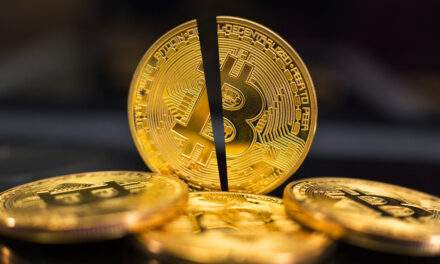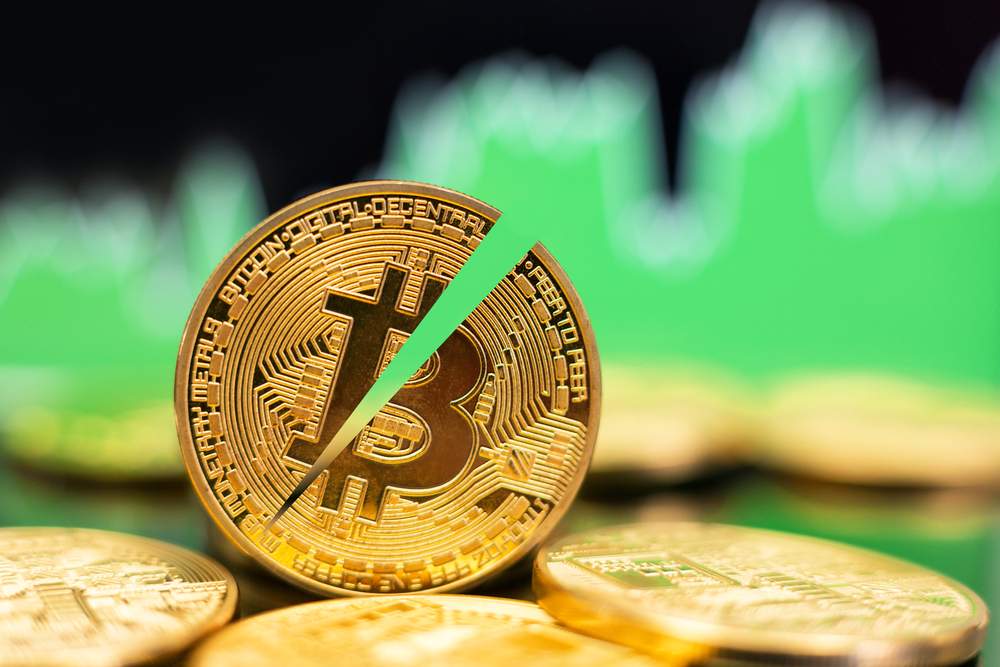Cryptocurrency is one of the biggest opportunities this year — specifically because of what’s soon to come for bitcoin (BTC)…
It’s undergoing a “halving” event in April, which represents a key moment for crypto.
Why? Because “a rising tide lifts all boats.”
Just like the rise of AI and tech companies like Nvidia are also raising the share prices of other AI-related stocks, bitcoin’s halving event could do the same for other select cryptocurrencies.
Our experts don’t want to bring you hype investments. They want to help you get results.
So here’s what you need to know and why you should become a crypto investor today…
5 Things You Should Know About the Bitcoin Halving
There are five key things you should know about this event before you decide to invest in bitcoin, or any other cryptos for that matter.
Let’s start with the basics…
-
What the bitcoin halving is.
This is a process in which the number of new bitcoins that are added to the blockchain gets cut in half.
It creates an issue of supply and demand. Meaning, there will be less supply of BTC created and more demand for it (AKA: as more people want to invest in it).
And this will drive up the crypto’s price.
-
This will be bitcoin’s 4th halving.
Did you know that this halving event isn’t the first one?
It happens approximately every four years, or every 210,000 blocks added to the blockchain (as noted in the graphic above).
The first one happened in 2012, then another in 2016, and again in 2020. The fourth halving will happen in April, just under a month.
-
Bitcoin operates on a consensus mechanism called “proof-of-work.”
Adding blocks onto bitcoin’s blockchain network is a complex process. It operates on a consensus mechanism called “proof-of-work” to add blocks onto its blockchain.
This is where people (or “miners”) act as digital processors and validators of transactions that happen on the blockchain. Miners earn rewards and transaction fees for their efforts. In this way, miners are instrumental to the success of bitcoin’s network.
Proof-of-work is the other major alternative to “proof-of-stake,” which is the consensus mechanism that Ethereum (ETH) now uses.
-
Bitcoin (and other cryptos) are becoming a more attractive investment.
Crypto is still a relatively new asset class, even though it’s been around for over a decade.
Our resident crypto expert, Ian King, explained it best:
What is happening with bitcoin, and something I have been saying for years, is that people and institutions are buying it as a diversifier for their portfolios.
When you are a young fund manager, or you are in college, and you are studying what’s called “modern portfolio theory” (developed by this guy Markowitz in the 1950s), it essentially states that to have the most robust investment portfolio, you have to own a number of different assets.
The key is to have bonds, stocks, commodities, real estate. […] But we are now in the digital age. BTC is digital money. […] This is happening because more and more people are believing it. That’s it. It’s not like there is something written in science that says BTC has to be a diversifier or store of value. It’s happening because people’s beliefs are changing in real time…
On February 27, there were 9,000 BTC bought by ETFs. There were 900 BTC created that day. Around April 20, there will only be 450 new BTC created a day.
[…] Most people have this as part of their portfolio and it’s something they are not going to get rid of too easily.
Which is why the demand comes in: There aren’t any sellers. We’ve seen this happen in other BTC cycles, where [it hit] $20,000, $30,000, $40,000, $50,000. Before you know it, you’re at $100,000. I believe that this cycle is going to take us to a six-figure BTC.
-
Bitcoin’s halving won’t just benefit BTC.
Remember, “a rising tide lifts all boats.”
Ian has put together a brand-new webinar to present his latest research into bitcoin’s upcoming impact on the crypto industry.
For example, during the 2016 halving, bitcoin’s price rose by 263%. The entire crypto market went up 4,872%.
This was driven by a handful of coins that went up 3,000% … 5,000% … even 10,000% or more.
So Ian studied this halving to figure out why these coins surged. And in 2020, he put his findings to the test.
History repeated itself, and bitcoin soared 561% in the year following its halving. The entire crypto market went up 1,743% during the same time. Again, driven by a handful of coins.
So this time, Ian’s been able to pinpoint a pattern that could make certain cryptos soar right along with bitcoin after it’s halving this year.
Ian’s upcoming webinar, “The 4th Halving,” will be released on Tuesday, March 19 at 1 p.m. ET.
If you want to reserve your spot now, just go here to sign up.
📩 Questions? Send them to BanyanEdge@Banyanhill.com.
Happy Sunday!












I find the info is Way to Chatty and not enough stuff I can read quickly..Way to chatty,..Where are the new crypto touts..?? Paul
It was a pretty good short story for those whom are new to the game. I’m for all meat and hate fat also, but there are times you have to add the fat or else the meat will be no good.